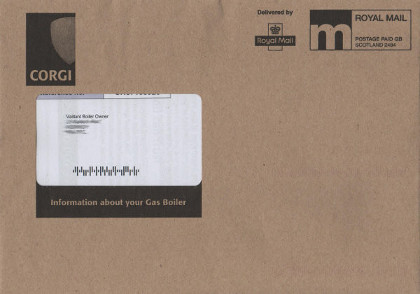I work for local council. We regularly send planning notification letters to residents. These letters are addressed to the owner/occupier and a large number of them are returned to us. We think this is because of the postal preference service. Do you have any suggestions?
The Mailing Preference Service won't prevent the letters from being delivered. The opt-out scheme will only stop personally addressed adverts from organisations that are a member of the Direct Marketing Association.
I guess the letters are delivered and then returned by recipients, presumably because they think the item is yet another piece of junk mail. This would be quite understandable. Many junk mailers send items addressed to a generic addressee – partly because it's cheap (they don't have to buy a list with names), partly because it's a way to escape regulations (they don't have to worry about recipients being registered with the Mailing Preference Service or the Data Protection Act). Often, they also make sure the items don't look like junk mail as this increases the chance that recipients will open the junk letters. Sending junk mail in disguise is a breach of the CAP Advertising Code but that doesn't seem to deter advertisers.
In short, junk mail sent addressed to a generic addressee is hugely annoying, and I'm not surprised that many people routinely return any items that aren't personally addressed.

My suggestion would be to print a text on the envelopes to make it clear that the item isn't junk mail – perhaps something along the lines of "Planning notification" or "Important information from X Council" would do the trick. The more descriptive the better – a generic text along the lines of "Important information" might not be enough (because some junk mailers present their adverts as "Important information").